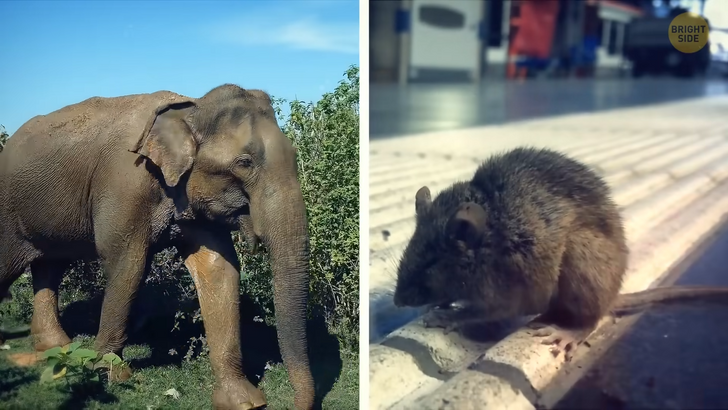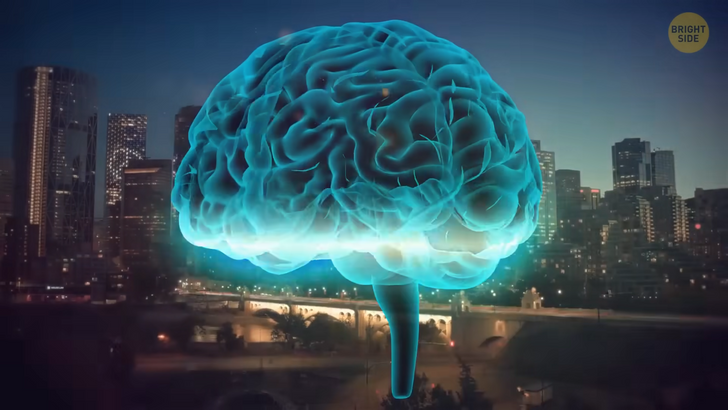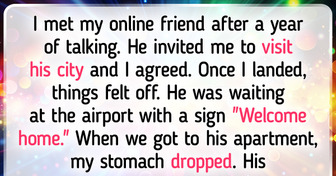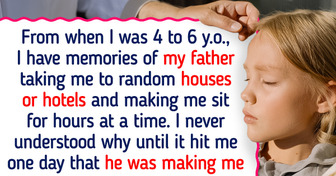My Fiancée Wants to Spend All My Savings on a Ring — What Should I Do?

If you’ve ever watched a cartoon about an elephant, you’ve surely noticed a scene where this huge animal is running from a small mouse. That’s because the myth surrounding them — the one about elephants being scared of mice — is as big and powerful as these animals are.
It turns out elephants do not have any particular dread of these small rodents. But they don’t see well and tend to move a bit slowly. So, they may be spooked by a faster-moving animal or even a bird if they are caught off guard. Speaking of myths surrounding animals, we’ve all been told at one point that bats are blind.

In reality, these small flying creatures can see, but their vision is reduced to black-and-white hues. But at night, they can see way better than we do. Their vision lacks the color receptors that we have, but in low light, we don’t see much color either.
Bats have a built-in sonar and can navigate their surroundings better at night. That’s because they calibrate their direction based on how sounds bounce back from the nearest objects. The myth about bats being blind probably appeared because these animals don’t see as well as we do in daylight.
If an insect falls from a certain height, does it sustain any damage? Well, the subject is a bit complex, but let’s take ants, for example. Ants don’t get any injuries during such a fall, and that’s because they’re so small. A lot of other insects can fall for miles and still be fine.
The explanation has a lot to do with math and physics. But to put it simply, so I can understand it, most insects are not heavy enough to impact the surface they hit. More so, while falling, they don’t actually gather speed. They slow down. An ant’s relatively large surface area — for that tiny weight — creates a lot of drag as the bug moves through the air. So it slows down as it reaches the end of its flight.

There’s a similar myth surrounding pennies falling from a tall building. Some people claim that when a penny is dropped from a great height, it speeds up, and it can end badly for a person in its way. In reality, because of its size and shape, a penny falling down from a tall building can cause the same damage as a falling leaf.
Should it fall on your head, you’d only feel a tiny bit of pressure. As it descends, the penny collides with air particles, which prevents the small object from accelerating. And of course, that’s a drag. That resistance of the air surrounding it is the reason why the penny cannot harm anyone.
There are some other objects that may get a bit more dangerous. Like a ball-point pen, for example. It all depends on its design and the way it falls down to the ground. It can spin, flutter, or just go straight down. Depending on the way of descent, a dropping pen might even damage a sidewalk and cause some injuries to pedestrians.
Remember the 5-second rule? Yes, that’s a myth, too. Even if you picked up that cookie as soon as you dropped it on the floor, eating it is still not safe. Bacteria can get on your food very fast. Pieces of food with wet surfaces, like fruit or a slice of tart, (Mmmmm) can pick up harmful organisms from the ground even faster.

Just because you’ve just finished scrubbing your floors doesn’t necessarily make them clean. Some germs can survive for longer periods of time, and you need very harsh chemicals to get rid of them. If you drop something while enjoying your dinner, your safest bet will be to just throw it away.
You know how some people say that hitting the snooze button gives you some extra time to rest? Not only is it untrue, but hitting the snooze button can also reduce your sleep quality. Those 10-minute intervals of sleep you get over and over again aren’t the good type of sleep. It’s fragmented. If anything, it will make you feel more tired during the day.
More so, you can actually sleep too much. And oversleeping makes you even sleepier and can affect your metabolism and your energy levels. Not to mention it can be a real pain for people sharing the same bed or room with you. I know, I know, breaking up with the snooze button can be a real heartbreak so let’s see what you can do. First of all, set a realistic alarm. If you’re more of a night owl, don’t force yourself to wake up really early in the morning if you don’t have to.
Find a sleeping schedule that works for you and, most importantly, stick to it. Get out of bed as soon as you wake up. The change in posture will trigger the right chemicals in your body that will eliminate your need to go back to sleep. As a last resort, you can even move your alarm clock across the room. If you need to get out of bed to hit the snooze button, you’ll be less likely to get back to sleep.

You might have heard that lightning never strikes the same place twice. This information is also dangerously wrong, as lightning often occurs in the exact same place — or at least nearby — twice. Also, if you’re ever in an open field during a thunderstorm, the best course of action is to find shelter. Don’t touch anything mechanical or electrical, either. If you’re indoors, stay away from the windows. Should the storm start while you’re kite-flying, best to postpone it until it’s over.
Let’s move on to those myths about the human body. Some people say we only use 10% of our brain at any given time. This information is false. I only use 5%. Actually, our brain is busy all day long and through the night as well. It never turns off completely, not even when we sleep. Our brain works like a small factory — each area is designed to help us with a particular task.
Most of the time, our brain is preoccupied with doing things we aren’t even aware of, like breathing, walking, or digesting food. Each time you learn a new language or get better at a certain skill, you don’t “unlock” a new part of your brain — because it’s never idle. But depending on the activity you’re doing, you may be utilizing some portions of your brain in a new way.

Pet lovers might have heard this one: a dog’s mouth is cleaner than that of a human. Myth alert! Their mouths are much dirtier than ours. Dogs can also carry a lot of diseases, especially if they are not well taken care of.
Apart from that, a dog uses its mouth for a whole lot more things than we do. The animal needs it to get to know its surroundings better since it doesn’t have opposable thumbs. So they end up using it to pick things up from the ground — and these things haven’t been washed, obviously.
They also tend to lick all sorts of things that aren’t necessarily sanitary, like garbage, floors, or their own paws and stuff. As endearing as it might be, try to remember this the next time your dog rushes to lick your face.

We have many more senses than the classic 5 we’ve all heard about: sight, hearing, touch, taste, and smell. Apart from these, we have at least four others. We human mammals have proprioception, which is our ability to orient ourselves in space.
Then we also have thermoception, which is our ability to estimate our own temperature and figure out if we’re hot or cold. We have equilibrioception — that’s our sense of balance. Lastly, we have interoception — or the sense of our own physiological condition. It’s the sense that allows us to figure out whether we’re hungry or sleepy.
Here’s a cool party trick. Next time someone talks to you about how we humans have 5 senses, barge in and say you have 9. Before you start explaining what each of them does, let them wonder if you’re a superhero with supernatural powers.











